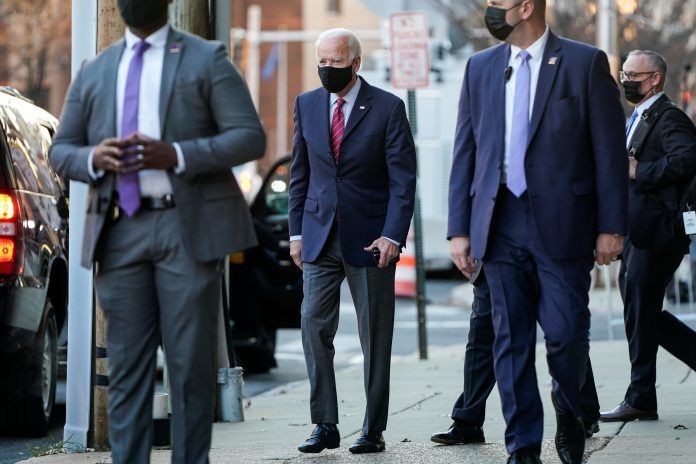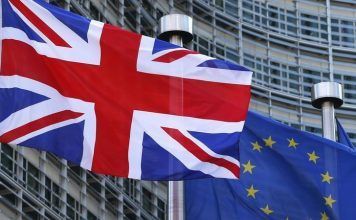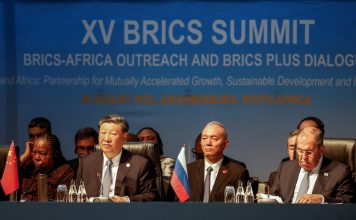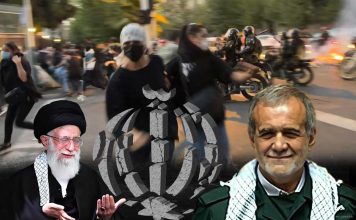
By Ahmad Rafat
U.S. electors will meet in their respective states on Dec. 14 to finalize the presidential election results, which handed the challenger Joe Biden a decisive win over the incumbent President Donald Trump. Mr. Biden received 306 electoral votes, exceeding the 270 he needed to secure a victory.
Despite Biden’s convincing electoral win and his 6 million more popular votes, Mr. Trump refuses to concede. He has now accepted that a formal U.S. transition should begin for President-elect Joe Biden to take office.
Joe Biden will be sworn in as the 46th U.S. president on Jan. 20, 2021. Biden’s running mate Kamala Harris will also be sworn in as the U.S. vice-president on the same day.
Meanwhile, the Biden transition team has been busy planning the new administration’s economic, domestic and foreign policies and its strategy to combat COVID-19. Biden has picked some long-time allies to fill his cabinet posts, including Antony Blinken as the Secretary of State and Jake Sullivan as the National Security Adviser.
In its first 100 days, the Biden administration’s primary focus will be the health crisis caused by the coronavirus and the devastating effects of the pandemic on the U.S. economy.
Biden and his team will also have to address pressing foreign policy issues, including rebuilding ties with Europe and clarifying its approach to Iran. Relations between the U.S. and European governments have deteriorated severely during the Trump presidency.
Ties between the U.S. and EU were further strained on Aug. 26, when all 15 members of the UN Security Council, except the Dominican Republic, blocked a U.S. effort to trigger the “snapback” mechanism that would have ended the Joint Comprehensive Plan of Action (JCPOA), better known as the Iran nuclear deal, completely.
The U.S. withdrew from the agreement in May 2018.
It is important to note that the Biden administration is not the continuation of former U.S. President Barack Obama’s government. Biden has been a long-time supporter of Israel. He worked closely with his Republican colleagues in the Senate for 40 years. He will probably have to work with a Republican-majority Senate again. Besides, the current world conditions differ significantly from 2015 when the JCPOA was signed.
By mending its ties with EU member states, Washington can win the support of Britain, Germany, and France (signatories to the JCPOA) to pressure Iran to fulfill its commitments to the nuclear deal, curb its regional military activities, and halt its ballistic missile program and support for Shia militias.
European countries have expressed grave concerns over a report released earlier this month by the UN nuclear watchdog, the International Atomic Energy Agency (IAEA), which said Iran’s stockpile of low-enriched uranium had reached 2,442.9kg (5,385.6lb) — nearly 12 times the amount permitted under the JCPOA.
The IAEA said Iran was continuing to enrich uranium to a purity of up to 4.5 percent — in violation of the 3.67 percent threshold agreed under the 2015 deal.
“The Agency verified Iran had installed the cascade of IR-2m centrifuges,” the IAEA report added. “On Nov. 9, the Agency also verified that Iran had installed the cascade of IR-4 centrifuges but had not begun installing the cascade of IR-6 centrifuges.”
The EU is also concerned about the Islamic Republic’s ballistic missile program and military activities in Iraq, Syria, Lebanon, Yemen, and Afghanistan.
During his visit to Paris earlier this month, U.S. Secretary of State Mike Pompeo told the French newspaper, Le Figaro, that Europe and the U.S. had more or less the same expectations from the Islamic Republic, but that they differed on how to achieve their goals.
Problems between the U.S. and EU began when Trump unilaterally withdrew from the nuclear deal. The dispute could be resolved quickly if the U.S. were to rejoin the JCPOA, as Biden has promised to do. The U.S. and Europe can then align their policy on Iran.
However, the U.S. will not rejoin the JCPOA quickly. Biden and his transition team have hinted they will have specific conditions for renegotiating the nuclear deal, including Iran’s regional activities and ballistic missile program. The Islamic Republic has always maintained that its regional military activities, ballistic missile program, and support for Shia militias are not open for discussion.
In an interview with the Associated Press (AP), Hossein Dehghan, a former air force officer in the Islamic Revolutionary Guards Corps (IRGC), and current special advisor to Iran’s Supreme Leader Ayatollah Ali Khamenei, said: “The Islamic Republic of Iran will not negotiate its defensive power with anybody under any circumstances.”
“Missiles are a symbol of the massive potential that is in our experts, young people, and industrial centers,” Mr. Dehghan added.
Although Arab countries, Gulf states, and Israel are trying to make it hard for Biden to rejoin the JCPOA, they are resigned to the fact that the U.S. will revisit the nuclear deal soon.
Recent reports about the assassination of a senior al-Qaeda official and his daughter by Israeli agents in Tehran could have been aimed at dissuading Biden from negotiating with a country that harbors terrorists.
In August, the Mehr News Agency reported that unknown gunmen had killed two Lebanese nationals on Tehran’s streets. Citing a government report, Mehr identified the two as Habib Daoud, a history professor, and his 27-year-old daughter Maryam Daoud.
However, on Nov. 15, the New York Times reported — citing four former and current U.S. intelligence officials – that the “Israeli assassination squad known as the ‘Tip of the Spear’ killed the deputy leader of al-Qaeda in Iran earlier this year, at the behest of President Trump’s administration.”
“Abu Mohammed al-Masri was shot dead in his car in Tehran on Aug. 7, along with his daughter, who was Osama bin Laden’s daughter-in-law,” the paper added. “Iranian media reported at the time that the victims were a Lebanese history professor called Habib Daoud and his daughter. However, no trace of a professor by that name has been found.”
Shortly after Biden was declared the winner in the presidential race, the Trump administration sanctioned several Iranian individuals and institutions closely linked to the IRGC, which the U.S. designated as a terrorist organization in 2019. The measure aims to tie the incoming administration’s hand and prevent Biden from changing the U.S. policy on Iran.
In recent days, Western media have said Israel has been considering a surgical military attack on the Islamic Republic’s nuclear sites, which if true could have a massive impact on Biden’s Iran policy. Several Israeli cabinet ministers have recently said that all options regarding Iran were still on the table, implying that military action was a real possibility.
The presence of Israeli intelligence agents and operators inside Iran makes the military operation a real possibility.
Two years ago, Israeli agents successfully stole half a ton of top-secret documents on Iran’s nuclear activities from a building in a Tehran suburb and smuggled them out of the country.
Some people believe that Mossad agents are responsible for several suspicious explosions and fires at Iran’s nuclear facilities in recent months.
After the assassination of Lieutenant General Ghasem Soleimani, the former commander of the IRGC Qods Force (IRGC-QF), the Islamic Republic’s power and influence in the region, especially in Iraq and Lebanon, diminished significantly.
Commander Soleimani was killed in a U.S. drone attack on the Baghdad International Airport on Jan. 3.
Also, the rift between Tehran and Moscow over Syrian continues to widen.
The Islamic Republic’s chronic mismanagement in the past 40 years have crippled the country’s economy, causing persistent hyperinflation and unemployment. The COVID-19 pandemic and stringent U.S. sanctions have exasperated the country’s economic crisis, pushing a large segment of the population into poverty.
The current crisis and pressures from the U.S. and Europe could prompt Iran’s Supreme Leader Ayatollah Ali Khamenei to revive a directive by Ayatollah Ruhollah Khomeini, the founder of the Islamic Republic, who said: “Everyone must do their utmost to safeguard the Islamic Republic, even if it means suspending some of their Islamic obligations temporarily.”





